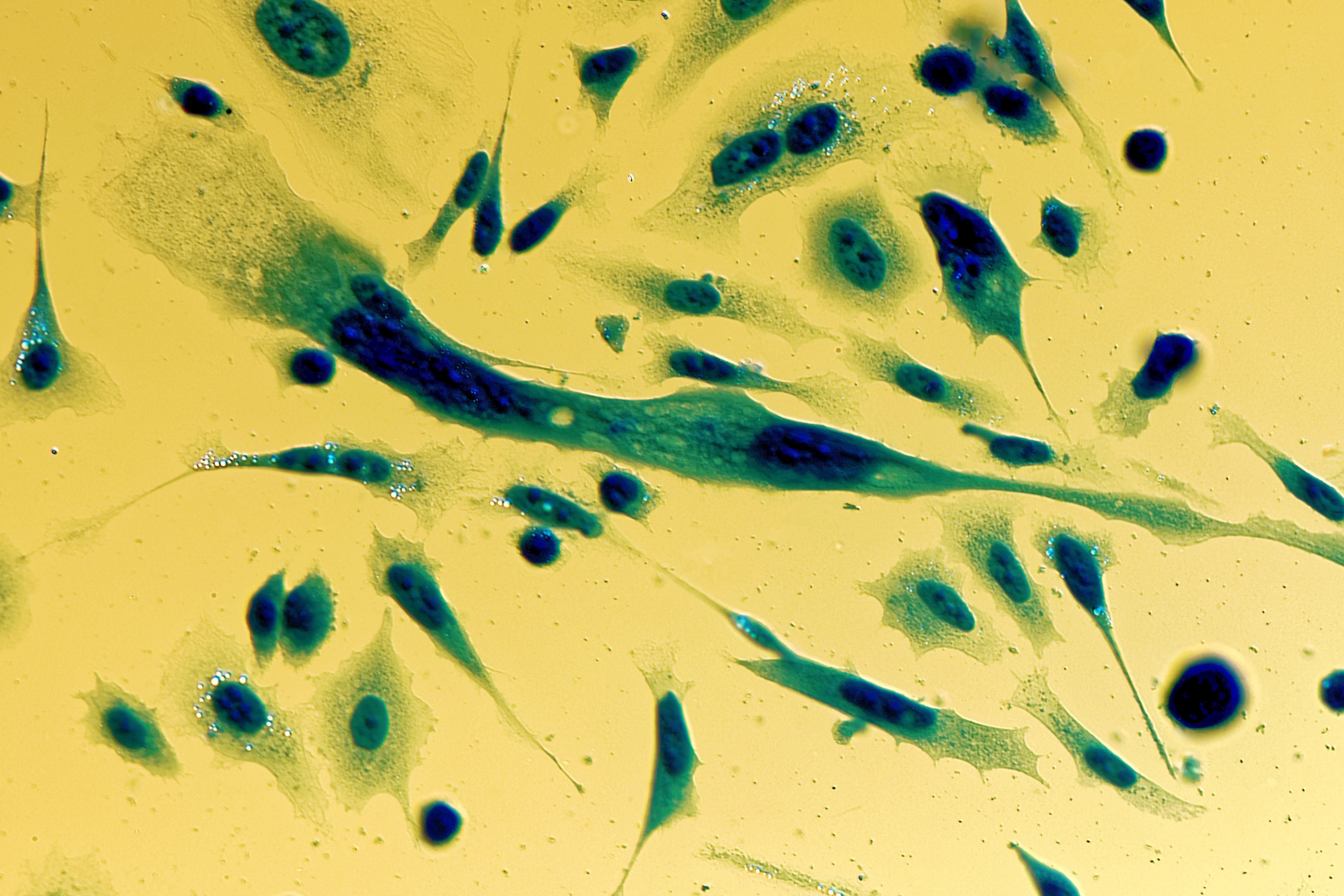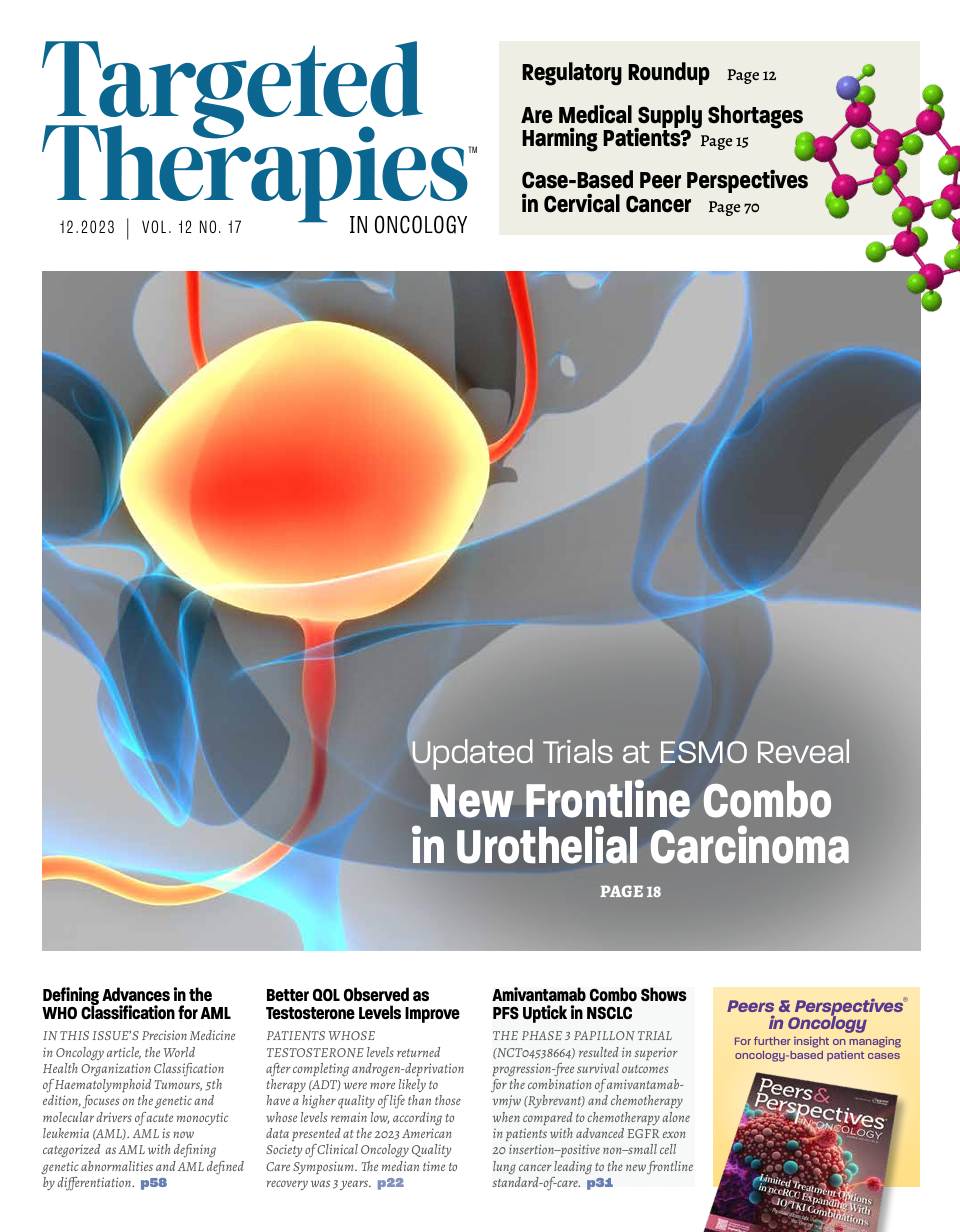Better QOL Observed as Testosterone Levels Improve

After treatment with androgen-deprivation therapy (ADT), investigators reported that patients who exhibited a recovery of testosterone levels had a better quality-of-life score compared with those patients whose levels did not return, according to results from a phase 3 trial. Findings were presented in a poster presentation from the 2023 American Society of Clinical Oncology (ASCO) Quality Care Symposium.
A total of 630 patients with high-risk prostate cancer were randomly assigned to 2 groups, in which they received either pelvic and prostate radiotherapy with 36 months of ADT or pelvic and prostate radiotherapy with 18 months of ADT. Serum testosterone was measured at baseline.
Quality of life was determined by the validated European Organization for the Research and Treatment of Cancer Quality of Life Questionnaire (EORTC30). Questionnaires were filled out before treatments, every 6 months during ADT, 4 months after ADT, and then once a year for 5 years.
Investigators noted that 361 patients were excluded from the study and analysis. Of the patients who were not included in the analysis, 63 did not receive exactly 18 or 36 months of ADT and 15 did not survive more than a year.
Other reasons the researchers excluded some patients were because 55 had no serum testosterone measured at baseline or during follow-up, 105 patients had a biochemical failure, 92 had evidence of metastatic/recurrent disease and 31 did not answer the quality-of-life questionnaire.
Among the patients who were analyzed for this study (n = 269), the median follow-up time was 14 years. Serum testosterone levels returned to normal in 52.0% of patients (140 of 269), 56.6% of patients (94 of 166) from the 18 month-ADT group, and 44.7% of patients (46 of 103) from the 36 month-ADT group.
Investigators reported that the median recovery time for patients who were able to regain a normal level of testosterone was 3 years for patients in the 18 month-ADT group and 5 years in the 36 month-ADT group.
When the quality-of-life questionnaires were compared between patients who had testosterone recovery and patients who did not recover, they found that patients who recovered had better quality of life.
Of note, the researchers found that responses from patients who recovered and had better quality of life emphasized topics including: physical issues, emotional, pain, dyspnea, fatigue, insomnia, diarrhea and financial difficulties.
The poster detailed the quality-of-life questionnaire used in the study, which asked patients whether they were constipated, had diarrhea, had difficulty concentrating, along with feelings of tiredness, tenseness, irritability, depression and worriedness.
Other questions asked whether patients had difficulty remembering things and had pain interfere with daily activities. Another section asked if the patient’s condition or medical treatment affected their social and family life, and whether they experienced any financial difficulties regarding their condition or treatments, according to the investigators.
The investigators recommended wrote that 18 months of ADT should be the preferred duration of treatment because of the faster and higher proportion of patients who recover to a normal testosterone level in a shorter time period without long-term detriments.
REFERENCES
Nabid A, Carrier N, Martin A-G, et al. Quality of life comparison based on testosterone recovery after androgen deprivation therapy in patients cured from high-risk prostate cancer: Long term data from a phase III trial. J Clin Oncol. 2023. 19(suppl 11):333-333. doi:10.1200/OP.2023.19.11_suppl.333

Survivorship Care Promotes Evidence-Based Approaches for Quality of Life and Beyond
March 21st 2025Frank J. Penedo, PhD, explains the challenges of survivorship care for patients with cancer and how he implements programs to support patients’ emotional, physical, and practical needs.
Read More